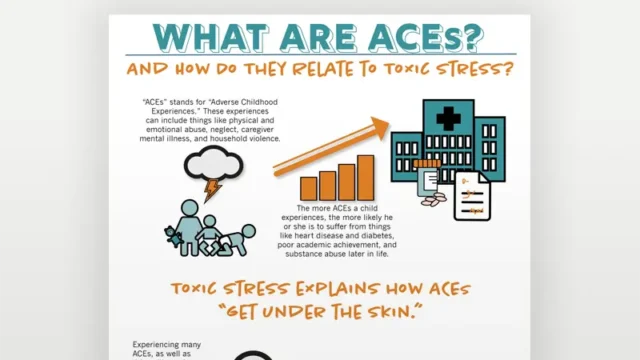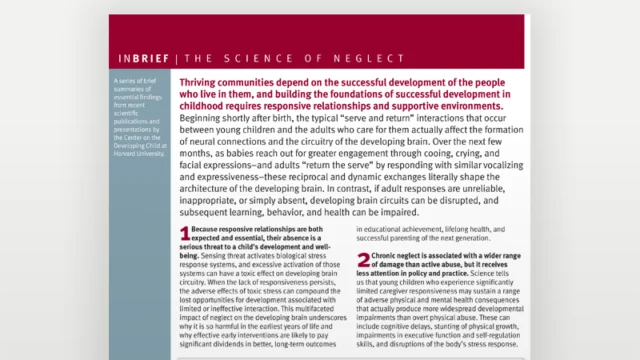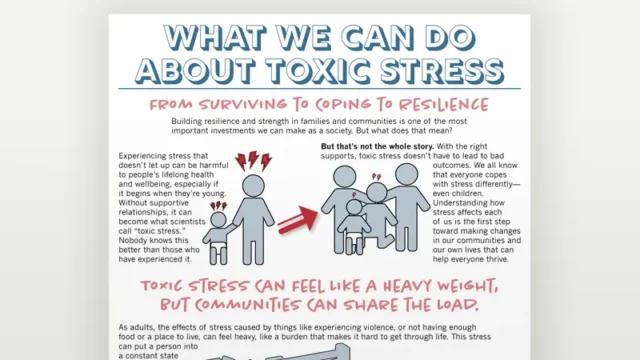A Guide to Toxic Stress

While it may seem surprising, not all stress is bad. There are three types of stress response: positive, tolerable, and toxic. Positive stress response occurs when a child has a challenging experience, such as the fear or brief pain that can come with receiving a vaccine at the doctor’s office, with support from a caring adult to help their stress response return quickly to normal. Tolerable stress response activates the body’s alert systems to a greater degree due to severe, longer-lasting difficulties like natural disasters or the loss of a loved one, but if buffered by supportive relationships with adults who help the child adapt, the brain and other organs can recover from potentially damaging effects. Toxic stress response, however, occurs when a child faces prolonged adversity, such as abuse or neglect, without adequate adult support, disrupting the development of healthy brain architecture, with implications for learning, attention, and lifelong health and well-being.
Knowing that attentive, responsive caregiving can buffer against the effects of toxic stress, policies that both support caregivers and minimize the disruptive impacts of toxic stress on young children can help foster healthy childhood development and lifelong well-being. Our resources explore what toxic stress is, how it can affect early childhood development, and strategies to protect our children and improve outcomes.
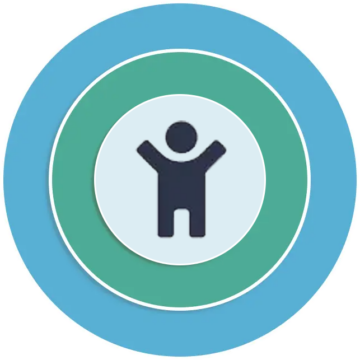 Developmental Environments
Developmental Environments
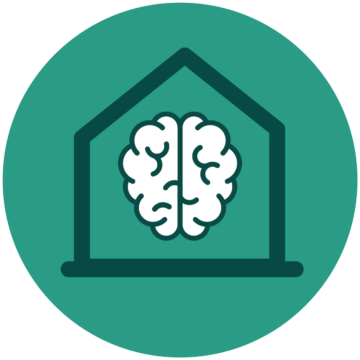 Brain Architecture
Brain Architecture


